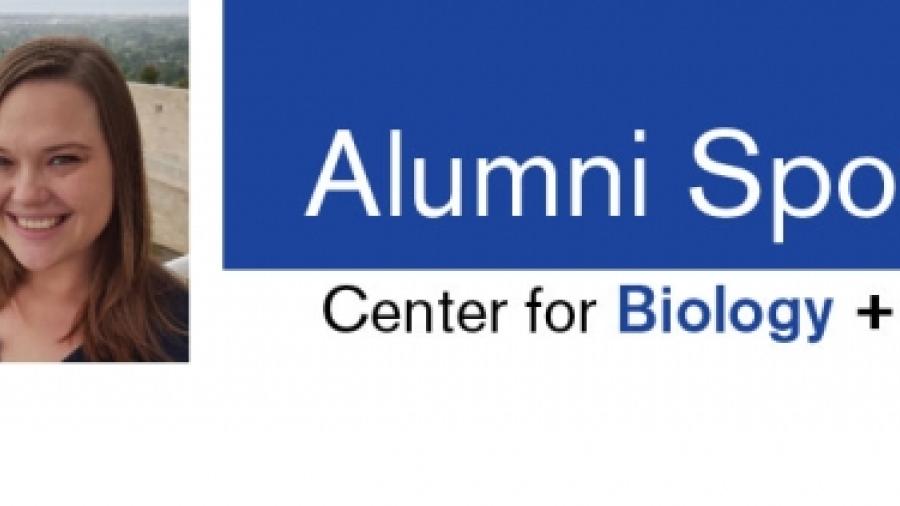
Alumni Spotlight: Liz Barnes
Author: Elizabeth Barnes
I started my academic career in biology and society ten years ago when I transferred to ASU as an undergraduate student from a community college. At that time, I was a first-generation college student without a high school diploma or a GED and so I did not think that I would fit in at ASU. I knew I wanted to be an academic, but it was difficult for me to connect with professors who seemed untouchable. One of my clearest memories was when a graduate TA asked students to write what we wanted to be when we were done with college. I was hesitant to reveal my ambitious goal and I still cringe when I remember that I wrote in big letters “P-R-O-F-F-E-S-S-O-R”. And yes, I spelled it wrong.
The next eight years were hard and there were a lot more moments like these that challenged my belief that I could reach my goal. Becoming an academic when your entire history has defined you as something else is difficult. Both the culture of academia and my own lack of confidence were frequent hurdles. Additionally, it took a long time to make progress towards my goal because not only did I have to work full time as a diner server, but I also spent four years at a community college before coming to ASU and it would be another three years before I completed my undergraduate degree. However, my last two years at ASU as an undergraduate at the Center for Biology and Society has changed my academic and life trajectory significantly.
There are key moments in one’s life in which you know something took you down a different path. Taking biology and society classes with Dr. Jane Maienschein was that for me. During my time in these courses, Maienschein worked with me to hone my research interests, my writing, and to find impactful research mentors who fit my research interests. She was the first professor who made herself accessible to me and made me feel valued as a nontraditional student. After Maienschein helped pair me with my undergraduate thesis advisor, my advisor hired me as a research assistant, and I was then able to quit my job as a diner server. Since I did not have to spend any more time working at the diner, I was able to turn my academic interests into actual academic research.
As a senior undergraduate student, I joined the 4+1 program and Maienschein introduced me to yet another impactful mentor, Dr. Sara Brownell, who would go on to become my Master’s, Ph.D., and postdoc advisor. Together, for six years, we have published manuscripts on how to teach evolution to religious students. I was even chosen to receive a Graduate Research Fellowship from the NSF to conduct this research! One of the things I am most proud of from my time at ASU is the instructional framework that we published called “Religious Cultural Competence in Evolution Education (ReCCEE),” which is focused on helping college biology instructors effectively communicate evolution to their students of faith. I have had the time of my life at ASU. I travelled the world, gave talks about my research to full rooms of scientists, our work has been published in popular science magazines, and I have conducted studies, the results of which got published in academic journals. It has been a dream come true. And lucky for me, this journey was only just beginning!
Despite the fact that I was so unfamiliar with academia when I started at ASU that I could not even spell the word professor, I arrived in Tennessee this year to start my position as an Assistant Professor of Biology Education Research. My “Social Perceptions of Science (SPS)” lab is housed in the biology department at Middle Tennessee State University and we will study how to effectively communicate socio-scientific issues to the students and public. I cannot wait to get started!